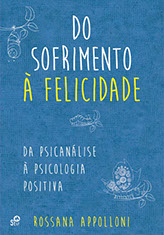After psychoanalysis began the therapeutic method known as talk therapy humanistic-existential psychotherapy arrived to shift the approach to one more focused on the development of human potential, the responsibility of the individual and the search for meaning in life as factors in a person’s existential condition and sense of personal fulfilment.
By shifting away from an exclusive focus on illness toward the regulation of emotions and building personal fulfilment, the successive models of psychotherapy opened up new horizons to our understanding of psychological support. This gave rise to a greater awareness of our capacity for autonomy and the importance of self-determination, allowing us to move from suffering to the possibility of happiness by valuing the here and now.
This work seeks to reflect on some of the theoretical rifts that occurred throughout the 20th century in the field of psychotherapy, starting out from four fundamental paradigms: The psychodynamic perspective (based on Freudian psychoanalysis); the existential-humanistic approach (based on the human potential movement, the person-centered method, existential psychotherapy, psychosynthesis and logotherapy); the cognitive-behavioural approach (based on behaviourism, rational emotive behaviour psychotherapy (REBT) and cognitive theories); and, finally, the current ideas around positive psychology, which seek to create their own space for scientific investigation by connecting knowledge derived from cognitivism, existential humanism and moral psychology.
DO SOFRIMENTO À FELICIDADE -
Da Psicanálise à Psicologia Positiva
(Literal translation: FROM SUFFERING TO HAPPINESS -
From Psychoanalysis to Positive Psychology)
by Rossana Appolloni
Edition: 2015
Pages: 288
Editor: Self
ISBN: 9789898781543

© Rossana Appolloni 2013 - 2022. All rights reserved. Webdesign: A. Barradas Photographs: Walter Branco
